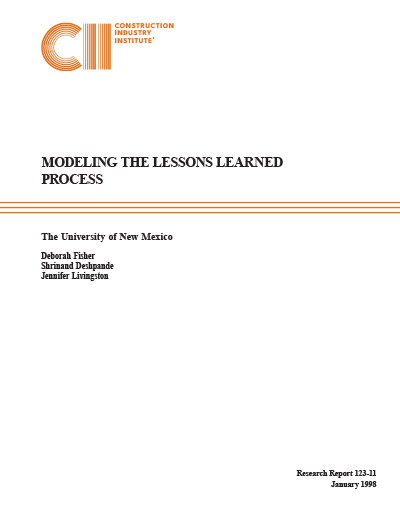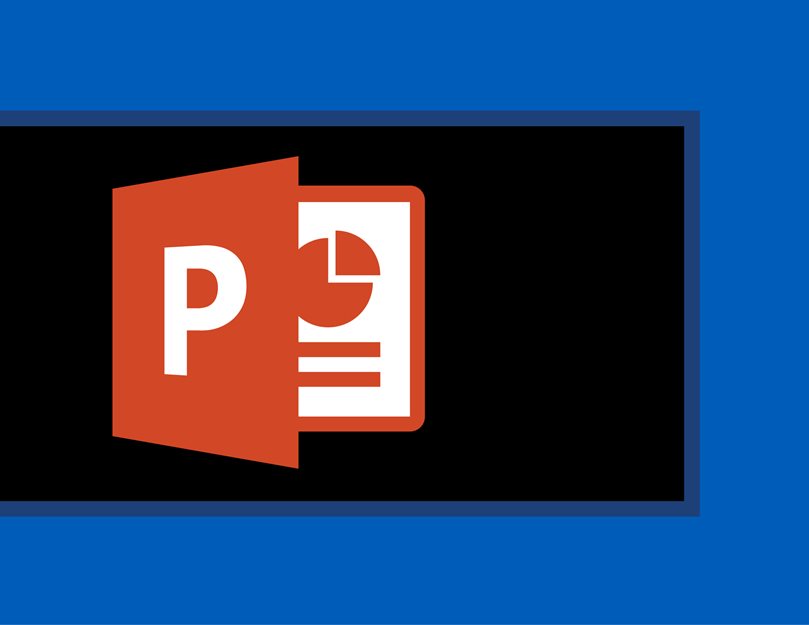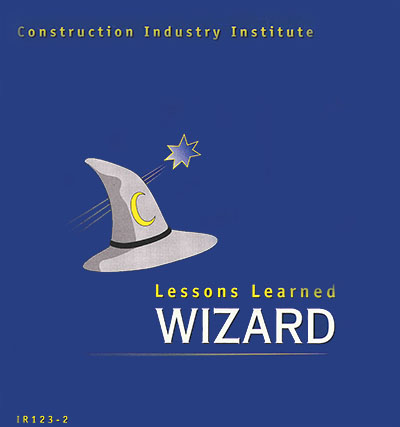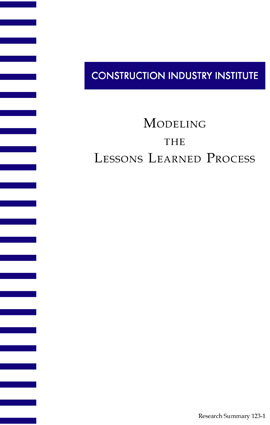
Modeling the Lessons Learned Process
This research report proves the hypothesis that there is value in managing organizational knowledge. This knowledge originates from the experiences of organizations and is retained in the form of corporate memory This retained knowledge is usable in expediting similar work in the future, thus benefiting the organization by assisting in rapid implementation on projects.
This report includes a formal process for the retention of knowledge, which we call an LLP (lessons learned process), making corporate memory independent of individuals and, hence, personnel transitions. The LLP is a hybrid of processes currently used by various organizations, found both in the literature and from short and long surveys. Detailed findings of both the literature search and surveys are contained within the report Some of these findings include significant return on investment when implementing a formal LLP. By leveraging knowledge, employees can be trained more quickly, provide better support, and avoid costly errors. Implementation of an LLP is a key component in achieving continuous improvement, and can have a significant impact on achieving overall project success. For each component within the LLP flowchart, we include who, when, what, and where each function should be carried out. We also mention some tools and key attributes that can be used in carrying out each task, making implementation of the LLP within an organization easy to follow.
The report discusses how process management and organizational culture affects implementation of the LLP. It discusses steps and strategies for building a learning organization, which does not occur overnight. Again, these steps include who, what, when and where each step needs to take place for proper LLP management and culture development. Also included are key attributes and tools to achieve these steps.
Finally, the report contains attributes of computer technology that are ideally suited for an LLP, The report contains a review of existing software available today and reviews each software’s platform application, data organization, and data retrieval characteristics. The report states how these software tools affect and aid the LLP. A prototype tool is presented and described. From this prototype the report establishes criteria for an ideal software tool that supports the LLP model.
Knowledge gained by the people of an organization is a core asset of the organization and like any asset needs to be properly managed. Without a formal LLP, the proper culture, and efficient technology application, the value of the knowledge, even if it is present, will be significantly less. The managing process adds value to the knowledge by making appropriate knowledge available whenever and wherever it is needed within the organization. This report contains the strategies to achieve these goals, creating a successful learning organization.
(RR123-11, p. 108)



